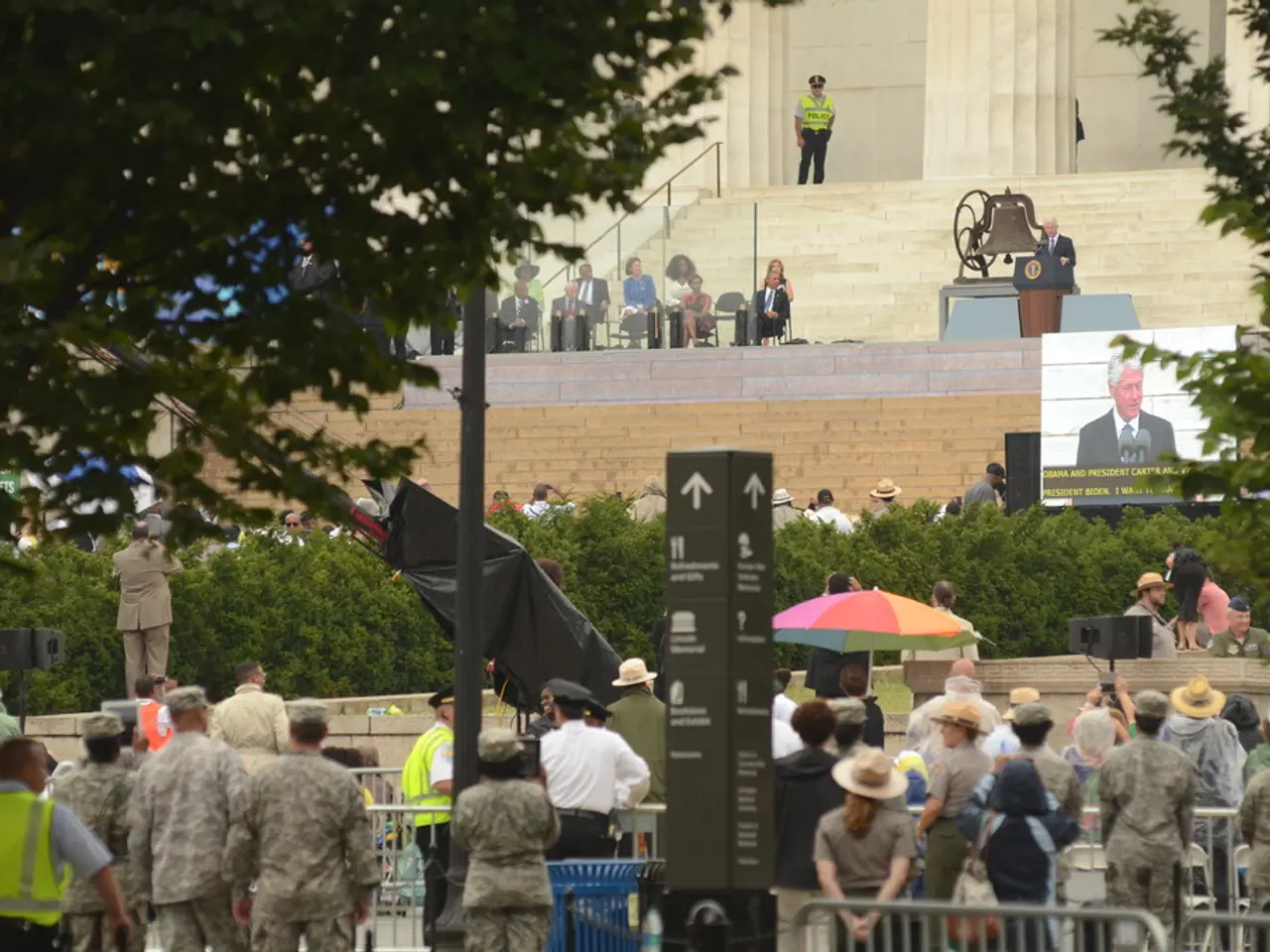Nations commence essential border negotiations in Malaysia, involving Thailand and Cambodia.
Thai-Cambodian Ministerial Summit Outlines Ceasefire Implementation and Border Security Measures
Tensions between Thailand and Cambodia are currently under the microscope, with the ongoing talks serving as a significant test for the General Border Committee (GBC). The outcomes of these discussions could have far-reaching implications for regional stability and bilateral relations for years to come.
The talks, which took place in Kuala Lumpur, Malaysia from 4-6 August, focused on maintaining the ceasefire agreement reached on 28 July and discussions regarding troop withdrawals. Additionally, the establishment of safe or demilitarized zones along the border was a key topic of conversation.
The high-level engagement was evident in the co-chairing of the meetings by Cambodia's Deputy Prime Minister and Minister of National Defence, Gen Tea Seiha, and Thailand's Acting Minister of Defence, Gen Nattaphon Narkphanit. The presence of observers from the United States, China, and Malaysia added significant diplomatic weight to the proceedings.
The discussions took place in a constructive atmosphere, with appreciation for Malaysia’s role as host and facilitator. The Thai delegation was led by the Director-General of the Department of Border Affairs.
Both sides pledged to avoid unprovoked firing and agreed not to increase military forces or conduct hostile operations in the border area. They also committed to the ceasefire that prohibits all military actions, including attacks on civilians and civilian infrastructure.
In addition to these commitments, the meeting resulted in an agreement on 13 key points focused on implementing the ceasefire and managing the border situation. These points reaffirm the ceasefire effective from July 28, 2025, and emphasize troop withdrawal and prevention of military escalation along the border.
The discussions also centered on demilitarized zones or mutually acceptable oversight mechanisms to reduce long-term tensions. Both sides are exploring the restoration of economic and social cooperation, including the opening of temporary border checkpoints. The establishment of local coordination channels is a key agenda item, particularly in sensitive border areas like Chong An Ma.
The GBC serves as a high-level bilateral military mechanism co-chaired by defense ministers from both nations. The talks in Kuala Lumpur marked the first ministerial-level meeting following the secretary-level talks in Malaysia. Wednesday's meeting was attended by General Natthapon Nakpanich, Acting Defence Minister of Thailand, and General Tea Seiha, Deputy Prime Minister and Defence Minister of Cambodia.
Gen Datuk Mohd Nizam Jaffar, Malaysia's Chief of Defence Forces, welcomed both delegations. The combined approach of ceasefire implementation, troop reduction, and formal border security mechanisms aims to reduce long-term tensions and foster regional stability.
In summary, the summit solidified the ceasefire and outlined practical steps for troop withdrawal and border security cooperation through 13 agreed points, demonstrating progress in resolving the border conflict peacefully. The next steps will involve the implementation of these agreements and ongoing dialogue to maintain peace and stability in the region.
Politics surrounding the Thai-Cambodian border tension have taken a significant turn as the ministerial-level Thai-Cambodian Ministerial Summit outlined practical steps for ceasefire implementation and border security measures. The discussions, guided by key points agreed upon, could potentially shape future general news regarding regional stability and bilateral relations for years to come.






